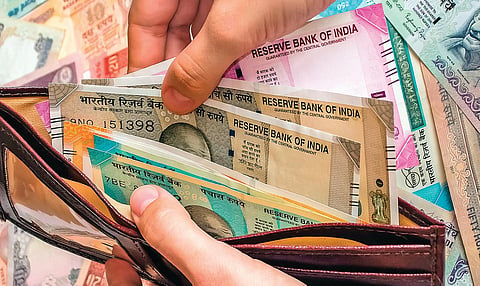

Vivek Kaul’s unsparing and inspired analysis of the shambolic state of Indian banking and the public sector banks (PSBs) owned by the government in his new book, Bad Money: Inside the NPA Mess and How it Threatens the Indian Banking System, is hugely fascinating and every bit as horrifying. Thanks to the likes of infamous defaulters on behemoth loans such as Nirav Modi and the King of Good Times, Vijay Mallya, the media as well as the public found themselves paying attention to the twists and turns in the murky world of high finance, especially since the poster boys for bad money merely represent the small fry in a gargantuan problem. The abysmal state of the banking system reeling under the crushing weight of bad loans to the tune of over `10 lakh crore has become painfully apparent.
The questions boil over demanding explanations:
How did the Indian financial system manage to land itself in such a hopeless mess? Why were so many defaulters and corporates allowed to get away scot-free with their ill-gotten gains having brought the economy dangerously close to the brink of total collapse? What is the government’s role in all this and why exactly are key officials who ought to have kept their eyes on the ball caught so often with their pants down? Exactly how much of the taxpayers’ money has been forked over to keep the PSBs afloat? Is the money stashed in banks after a lifetime of toil and labour safe? What is the exact price being paid for the staggering levels of corruption, malfeasance and disgraceful negligence on display? Is there a feasible solution to the banking crisis? Kaul undertakes the task of providing simple answers that are never simplistic while unravelling the many layers to a complicated issue without being condescending or obfuscating despite possessing a formidable intellect and a gift for grasping the intricacies of the complex, confusing maze of economics and finance.
Divided into two halves composed of crisp chapters and concise writing with a fair bit of number crunching that mercifully manages to spare the brain from the trauma of keeping track of impossible mathematics, Kaul’s Bad Money is never less than engrossing. The reader becomes familiar with the history of banking as the author details the factors that led to excessive government control over banking, the assorted variables that led to the present crisis while skilfully establishing the fragility of financing positions and the extent of the rot that has set in.
Kaul expresses his disdain for political posturing and bumbling moves like the populist loan melas that succeeded only in generating corruption, crony capitalism, partisanship, and fostering financial irresponsibility. These also failed those they were intended to help. The author shines a light on an intrinsically flawed system where knowledge is separated from power and existing enforcement agencies have failed to deter frauds, leading to the inevitable fallout from bad loans with small-time borrowers who are unable to pay feeling the full weight of the law even as the big fish swim to greener pastures.
The author makes it clear that the banking system is in bad shape. Efforts to amend the damage have come undone. Sound solutions though available are not being implemented since nobody wishes to upset the status quo which benefits the corrupt. The government, which ought to dilute its stakes in the PSBs, would rather pretend to be doing something without actually doing anything. While this state of affairs persists, the bad money is not going anywhere. Kaul’s book is brave and brilliant, and must be made mandatory reading for all.
Bad Money
By: Vivek Kaul
Publisher: HarperCollins
Pages: 360
Price: `599